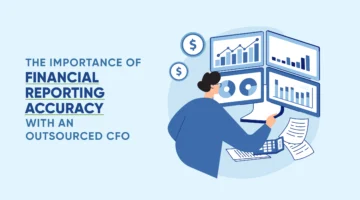Cash Flow and Understanding Profits
There are studies that say 82% of businesses fail because of poor cash flow or being cash poor, rather than the failure to run a profitable business. Why is this? In part is because the success of a business is too often tied to black and white things like profit and loss, operating in the red or in the black, or assets and liabilities.
However, profit and cash flow are two different financial metrics, and there is good reason why. Cash flow is how much cash a business has available at any given time. Profit is the amount of money you take home after you pay all of your expenses. The critical difference is this.
Let’s say you make bicycles, and your markup on them is 50%. Your expenses are 25%. That is a good profit margin, but when you order parts to build the bikes, say from Shimano, their invoices are due upon receipt. The power bill, internet, and cell phone bills also come due every month.
However, your customers at the bike shops pay invoices after 90 or even 120 days. This means for that period of time, you don’t have your profits in hand, but you still have invoices and bills due. The cash to pay those things has to come from somewhere.
Cash-Poor Woes
Cash is the most vital ingredient to any business. What cash poor means is like the situation above: you need to have cash to get through those three or four lean months. If you don’t, you can be in serious trouble, in some cases enough to cause bankruptcy.
Sure, you can take out a loan to provide you with working capital, or cash in the meantime, but the rising debt and interest can sometimes exceed your break even for your product, making what was a profitable venture unprofitable.
It is important as a business to understand cash flow, but also to learn how to manage it manage it successfully.
Measure First
Here is the deal: in order to manage cash flow, you need to know how much working capital you need. You cannot manage what you don’t measure. How do you figure out how much cash you need to operate on a daily basis?
- Inventory Levels: How much product do you need to have on hand? Remember, if you have product that is not moving, it is like money that is sitting there, not working for you when it could be. Good inventory management is essential to good cash flow management.
- Overdue Invoices: How many invoices are overdue? This works both ways. What do you owe that you have not paid yet? Who owes you money? When can you expect to be paid, and when do you plan to pay your invoices? How do the amounts of each match up?
- Ongoing Projects: How much is tied up in development and other projects? That is cash and potential income you do not have access to in order to pay current and ongoing expenses.
- Time it Takes to Get Paid: How long does it take on average between you paying your suppliers and when you get paid by the customer? This tells you how long you have to carry yourself and your own expenses.
The longer you record these metrics, the easier they become to predict. This means you can better manage cash in those lean times and ensure that your profits are protected.
Cash-Management Tips
There are a number of ways to manage your cash to prevent your business from being “cash poor.” Here are some tips and tricks.
- Short-Term Loans: As mentioned above, you need to be careful with this one, not to lay out too much money at any given time, and to watch your interest rates. Still, this can be a good temporary solution.
- Long-Term Financing: Instead of paying cash for large asset purchases when you have cash on hand, often a better idea is to finance them long term, especially equipment and real estate. That way, you have more cash on hand for operations and emergencies.
- Speed up Receivables: Bill early. Collect quickly. These are words to live by in the business world. For big projects, institute progressive invoicing. Follow up on overdue accounts, and make it easy for customers to pay you.
These may sound like simple steps, but it is easy to forget to follow up on past due items, and studies show the longer you let them languish, the less likely you are to get paid. It’s also easy to get overzealous when you are cash rich and make purchases like computers and other equipment that may bite you later.
CFO Advantages
Many small companies do not have a CFO, in part due to being cash poor at various times, but there are many benefits, including cash flow management. The issue is that many entrepreneurs who try to “do it all” themselves don’t understand this concept, and find themselves in financial hot water.
This does not mean you need to hire an entire financial department right away. Through NOW CFO, you can hire a CFO part time and for as long as you need one. The money you spend to hire help managing your liquid assets will pay for itself in income stabilization and better cash management.
Do you frequently find yourself cash poor even though your business is turning a profit? Take time today to talk to the financial professionals at NOW CFO and get help determining the personnel that might be best for your business. Talking with us is free, and it might be the conversation that changes everything for your company.
Featured image courtesy of Quince Media



